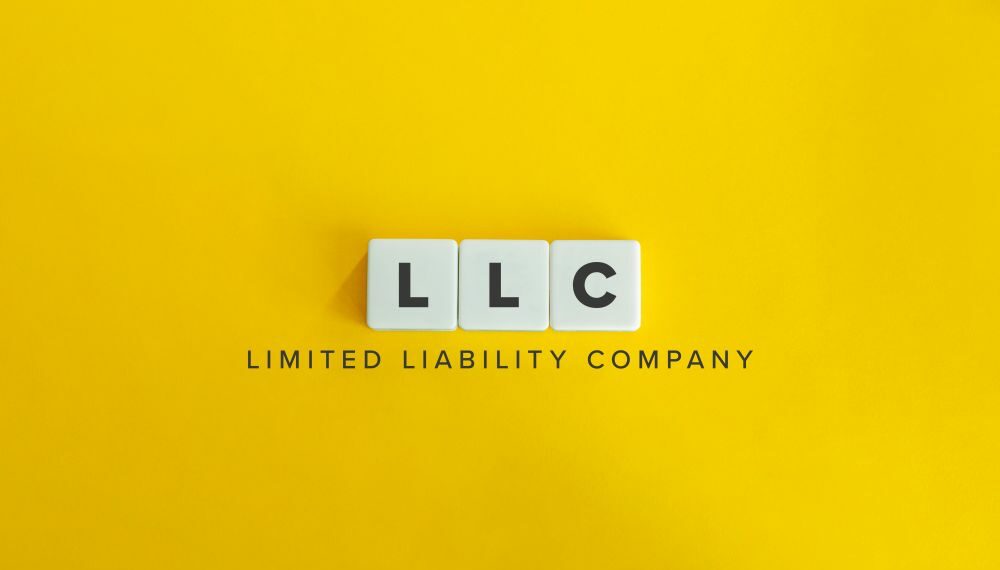When you launch a business, you have to make a seemingly endless number of important decisions. What will you call your business? Where should you set up office space? How soon do you need to hire personnel? What colors are right for your logo and website?
One of the most foundational decisions you’ll make is the type of legal structure you need. Whether forming an LLC in Texas or running a Sole Proprietorship in Illinois, the structure you choose for your business will impact everything from taxation to legal liability.
Needless to say, it’s not a decision to make lightly. Do your due diligence, assessing the different options and understanding the pros and cons associated with each.
Four Legal Structures for Your Business
To begin with, consider the four basic options for structuring your company.
Sole Proprietorship
The Sole Proprietorship is the simplest of all business structures, and it’s the easiest one to start. Basically, in a Sole Proprietorship, you’re not creating a separate business entity; there is no legal separation between business and owner. As such, Sole Proprietorships require you to report all business profits on your personal income tax return.
Partnership
A Partnership is an unincorporated business with multiple owners. The owners divide the profits amongst themselves, and each owner reports their share of the profits in their personal income tax return. A Partnership is very similar to a Sole Proprietorship, simply involving multiple owners as opposed to just the one.
Limited Liability Company (LLC)
An LLC creates a business entity that’s separate from the business owner, which means you can keep your business assets and liabilities distinct from your personal assets and liabilities. The LLC offers flexibility in taxation: You can choose to be taxed on an individual level or on a corporate level.
Corporation
The final option for structuring your business is to incorporate it. There are two types of Corporation to choose from: The S corporation and the C corporation.
An S corporation boasts a single class of stock, and no more than 100 total investors. Profits are taxed on shareholders’ tax returns, and there are some liability limits in place (as with an LLC).
Meanwhile, a C corporation can have multiple classes of stock and any number of investors. Profits are taxed first on the corporate level, then again on individual tax returns.
How to Choose the Right Legal Structure
As you think about which legal structure is right for your business, there are a few specific considerations to keep top-of-mind.
Risk & Liability
One of the most important considerations is risk. Think about it this way: With a Sole Proprietorship or a Partnership, there is no separation between your personal assets and business assets. As such, if someone brings a lawsuit against you, the courts could potentially seize your personal property, money from your family bank account, etc.
By contrast, LLC and Corporations establish a clean separation between the business owner and the business entity. This means that, with extremely rare exceptions, your personal assets will be shielded from legal liabilities.
In considering the type of business structure you need, a good starting point is to consider the level of risk tolerance you have.
Taxation
Another important question to ask yourself: How do you want the IRS to tax your business?
Many business owners prefer the pass-through approach, which means all business profits “pass through” the corporate structure directly to owners. In short, you only pay taxes on individual tax returns. Sole Proprietorships, Partnerships, S corporations, and many LLCs fit this description. (LLCs are considered as pass-through entities by default, but business owners can opt out of this tax reporting structure if they so desire.)
C corporations basically face double taxation: Profits are taxed at the corporate level and then owners must pay taxes again on any profits they claim.
Management and Administration
In considering the legal structure for your business, you’ll also want to think about managerial responsibilities and day-to-day administration. This is especially important when you have multiple owners involved.
For example, Partnerships usually have governing agreements in place that denote how profits are split, how management responsibilities are established, what happens if one partner dies, and so on. Corporations, meanwhile, are required by law to have Boards of Directors in place. The LLC structure allows for the most flexibility, providing business owners with some say in the type of management approach they want to take.
Initial Setup
It’s also important to think about the amount of work (and the amount of money) required to set up your company.
For Sole Proprietorships, Partnerships, and LLCs, there is usually very minimal paperwork needed to get the business up and running, and fees can be quite small. As an example, LLCs vary by state, and may be anywhere from $25 to about $300.
When incorporating, the complexity level escalates pretty considerably. This almost always requires insight from a skilled business attorney, which naturally increases the expense of launching the business.
Long-Term Plans
Finally, it’s important to think about what you want to accomplish with your business both in the short term and the long term.
Corporations actually have an edge here, in both categories. When it comes to the short term, a Corporation makes it relatively easy to attract investors and venture capitalists, which means you can scale the business pretty quickly. Also, Corporations have provisions to ensure the business continues after the founder dies, something that is generally not so with other legal structures.
When determining the right legal structure for your business, it’s important to think about what you want to achieve both now and in years to come.
Choosing the Right Framework for Your Business
There’s more than one way to structure your company. It’s critical to think through the different options as you consider what’s best for your particular business interests.



